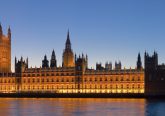As the coronavirus continues to spread across the United States, questions concerning American voters’ ability to cast their ballots safely in person on 3 November became increasingly urgent this election season. Despite his own record of voting by mail, President Trump has frequently attacked mail-in voting, making unfounded claims about the potential for fraud and playing favorites to suggest its validity only in states with Republican governors like Florida. Depicting vote by mail as a Democratic tactic to steal his re-election, Trump’s campaign even filed an ultimately dismissed suit in battleground Nevada to stop the state from sending absentee ballots out to all active voters.
However, mail-in voting has historically not been such a partisan issue. Even now, Fox News reports that Republicans fear a depressed voter turnout, citing how Senate majority whip John Thune of South Dakota disagrees with Trump’s rhetoric. In order to understand the roots of why such access to the ballot box was traditionally uncontested, it is worth considering the history of one of the main institutions involved – the United States Postal Service (USPS).
While the Founding Fathers envisioned the USPS to be an apolitical agency, President Andrew Jackson’s “spoils system” politicized the postal service. Whereas his predecessor John Quincy Adams had overseen the work of life-long public servants — experts in a sparse federal bureaucracy that existed at the time — Jackson’s mired down these workers, portraying them as corrupt elites working to thwart the wishes of the common man. With his election in 1828, Jackson felt that he had a mandate to, as party rhetoric described, “clean the Augean stables.” This was the nineteenth century version of Trump’s rhetoric to “drain the swamp,” and hence he established rotation in office otherwise referred to by his detractors as the “spoils system.”
This system replaced career public servants with Jackson’s political friends. The Postmaster General’s position was particularly desirable, especially among politically entrepreneurial newspaper editors. Americans relied on the delivery of newspapers by mail to remain politically informed and active, and editors frequently sought to reiterate party rhetoric through their papers’ advertising, local politics coverage and derision of rival papers. William T. Barry and Amos Kendall, who had edited a key Jacksonian newspaper, respectively served as Postmaster General during Jackson’s two terms.
At the same time that the role of the USPS was evolving, debate intensified over slavery, abolition and free speech. In 1835, the American Anti-Slavery Society took the bold move of mailing abolitionist materials to powerful southerners, who, unsurprisingly, considered the information incendiary. Postmaster General Kendall told local postmasters they were not required to deliver such materials and together with Jackson, himself a wealthy slaveowner, pressured Congress to pass legislation banning the delivery of any anti-slavery materials through the mail.
This legislation and its implications for free speech and the role of the federal government divided Congress. Instead, the body passed the Post Office Act of 1836, which stated that postmasters could not “unlawfully” decline to deliver mail. However, postmasters in slave states who had already attempted to stem the distribution of anti-slavery materials often interpreted the law as enabling them to destroy such materials. As such, Jackson’s actions both politicized the USPS for the short-term political benefit of his party and increased the agency’s long-term sectional polarization prior to the Civil War in the impediment of free speech.
Throughout the nineteenth century, the USPS retained its importance, often as the singular representative of the federal bureaucracy with which Americans would interact. This helped feed an increasing attachment to the agency since Jackson’s days as a non-political entity. In the twenty-first century, Gallup has consistently found the USPS to be the most trusted agency of the federal government, with data from 2019 showing 74% of Americans agree it does an “excellent” or “good” job.
Such trust has also historically allowed the USPS to step in where other businesses have failed. When Progressive Era muckrakers reported price gouging by parcel companies, the restriction on the USPS to only deliver parcels under four pounds was rescinded. Additionally, after several financial collapses at the turn of the twentieth century, postal banking was introduced with the 1910 Postal Savings Law. At each point, the USPS came to increasingly possess the public trust, and in 1970, the Postal Reorganization Act established the independent Postal Service from what had been the cabinet-level Post Office Department.
Like President Jackson’s appointees, Trump’s current Postmaster General Louis DeJoy has no experience working for the agency, but is a devout political supporter. Since accepting the position in June, DeJoy worked to diminish the USPS through hiring freezes, service cuts, and an overtime ban until public pressure forced him to change course. Analysts speculated that these actions could reflected conflicts of interest with the stocks he holds in companies that compete with USPS.
In politicizing the USPS after a modern history of independence, Trump is denigrating a key function of the federal government, which already faces the disillusionment of overwhelmed American voters in these troubled times. Concerned only with his own short-term political fortunes, Trump is threatening to destroy the effectiveness of an agency whose role in supporting democracy has never been as crucial as during the current pandemic. As all Americans should have the opportunity to cast their ballot safely and have their vote counted, the USPS must be supported and protected as an independent agency at the vanguard of democracy.




